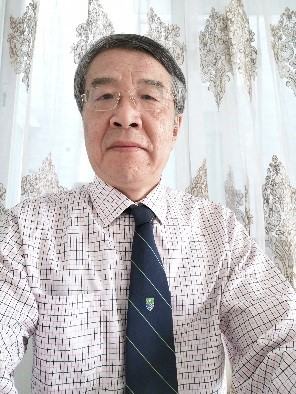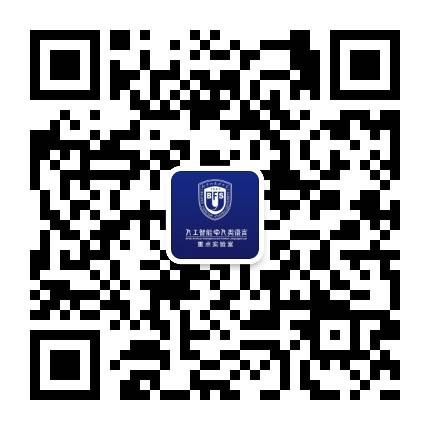2020年第七次全国人口普查数据显示,截至2021年我国60岁以上人口已达2.64亿,其中65岁及以上人口占1.9亿。老龄人群的话语特征及其变化机制研究、康复治疗以及临床服务等问题是“健康中国”战略实施的重要关切之一。
本研究基于实验室外语健脑强智研究中心申报的——国家人文社科基金重点项目——“基于老年多模态语料库老年语言能力与语言障碍研究(项目批准号:20AYY011)”的实验方法和“老年话语多模态语料库(the Multimodal Corpora of Gerontic Discourse,MCGD)”的大数据,重点讨论MCGD的两个核心问题:(1) 抽样和代表性;(2) 切分和标注。研究团队将中医天人合一思想用作建模的指导原则,经过科学抽样和多模态数据分析,揭示出衰老和人类语言能力之间的作用关系以及人工智能与老年人语言特征研究。研究成果对于语言学、老年医学以及多模态研究等多个学科领域有着重要的启发和指导作用。
【讲座主题】老年话语多模态语料的分割与标注——传统中医药思想的启示
【主 讲 人】顾曰国教授
【讲座时间】2021年8月18日(周三)15:00-16:30
【主办单位】北京外国语大学人工智能与人类语言重点实验室
【讲座语言】英语
【讲座内容提要】
Segmenting and Annotating Multimodal Corpus of Gerontic Discourse:
Inspirations and Principles from the Traditional Chinese Medicine
China’s 7th National Census of 2020 shows that the 60-year-old aging population reaches 264 million by 2021. Of 264 million, 190 million is 65 years old or above. Human ageing is unidirectional, and the time arrow always irreversibly points to death. Death terminates indescriminately the language capabilities individual speakers accumulate over the lifespan. This paper explores the interaction between ageing and language capabilities over the last phase of one’s lifespan, viz. from age 60 to the time of death. For this purpose, the Multimodal Corpora of Gerontic Discourse (MCGD) Project was piloted in the years 2003-2010, and became a national project funded by the Chinese Funding Council for Humanities in 2020.
This paper focuses on two central issues of MCGD: (1) sampling and representativeness; (2) segmentation and annotation. Demography-based random sampling is ideal but practically infeasible. 5-year birth cohort sampling is adopted as the second best method. Simulative modeling of a whole person, based on the Oneness Principle of Nature and Man of the Traditional Chinese Medicine, is presented as a governing principle for segmentation and annotation. MCGD comprises the following activity types: (1) Clinic cognitive evaluation tests, including MSE, MoCA, etc. (2) Festive activities: birthday parties, festival gatherings, etc. (3) Interviews: a. patterns of current life; b. experience of fraud victims; (4) Games (proto experimental):cooking, the Tower of London/Hanoi; (5) Retrospective narration of daily events. Complementary data include (1) End-of-life interviews with close relatives; (2) Funerals; (3) Tomb visits. All these activities are audio-video recorded. Demonstrations are provided to show how audio-video signals are segmented and annotated.
【主讲人简介】

顾曰国
北京外国语大学人工智能与人类语言重点实验室首席专家、外语健脑强智研究中心主任
顾曰国,现任北京外国语大学人工智能与人类语言重点实验室首席专家。原先职务包括中国社会科学院语言研究所研究员,应用语言学研究室主任,中国社会科学院创新工程首席研究员。兼任语料库暨计算语言学研究中心主任,中国多语言多模态语料库暨大数据研究中心主任,老年语言与看护研究中心主任(同济大学-社科院语言所联合),南京师范大学人工智能研究中心主任。
1985年获英国兰开斯特大学语言学系语言研究优等硕士学位,1987年获该系语用学与修辞学博士学位,师从英国学术院院士Leech院士。1988年从英国学成回国,1988年至1990年在北京外国语大学外国语言研究所从事博士后研究,1991年-1998年先后任该校英语二系主任,应用英语学院院长,北京外国语大学校长助理。1998-至今中国社会科学院语言研究所研究员(二级)。
主要研究兴趣包括语料库语言学、语用学、话语分析、英语教育等。代表作有Studies in Pragmatics and Discourse Analysis, Using the Computer in ELT: Practice and Theory, Chinese Painting,编写英语教材50余部。
曾任《当代语言学》主编(1998-2015)。担任编委的国际学术刊物包括:Journal of Pragmatics,Text and Talk,Pragmatics,Journal of Intercultural Communication,Journal of Multicultural Discourses,Journal of Corpora,International Review of Pragmatics,Pragmatics and Society,Dialogue and Language,Journal of Asian Art and Communication.
国际学术兼职包括英国诺定汉大学特聘教授,兰开斯特大学特聘研究员,香港理工大学校外学术顾问,澳大利亚西悉尼大学外聘教授,彼得大帝彼得堡理工大学访问讲习教授,澳大利亚悉尼大学杰出研究员等。国内学术兼职包括浙江大学、同济大学、人民大学、重庆大学、山西大学、首都师范大学等客座教授。中国英汉语比较研究会语言智能教学专业委员会(ChinaCALL)主任委员。
先后获霍英东教育基金第四届青年教师科研类一等奖,北京市哲学社会科学优秀论文一等奖,中国“国氏”博士后奖,国家级“优秀回国人员”,国家级“优秀博士后”称号,英国兰开斯特大学荣誉博士等。
译直播@厦门精艺达
提供直播技术支持
Livestreaming Powered by
TTV.CN of Master Translations
![]()



